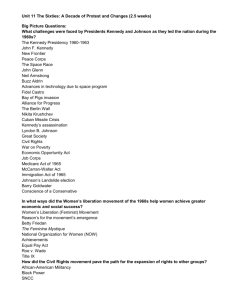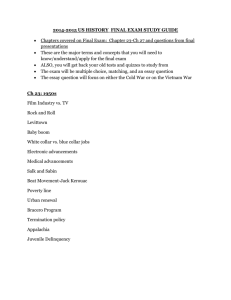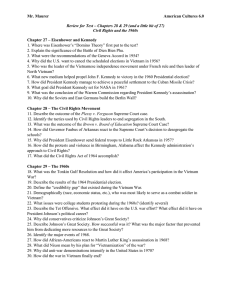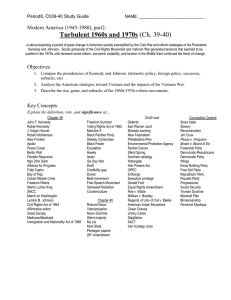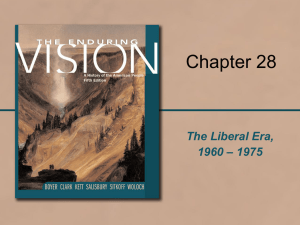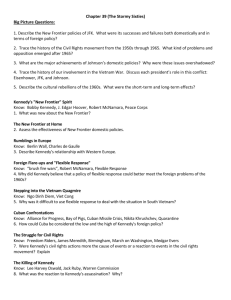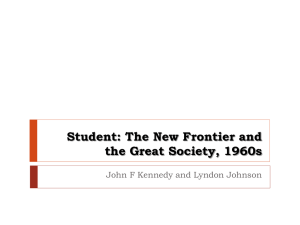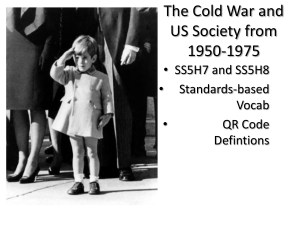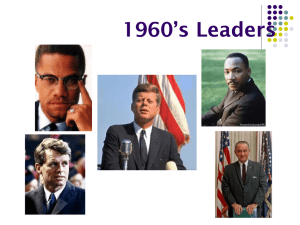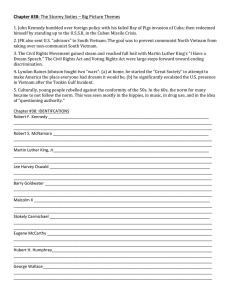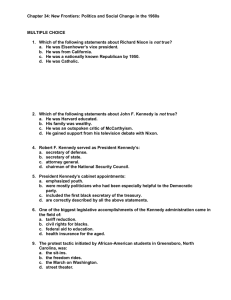Chapter 29 Reading Guide Doc
advertisement
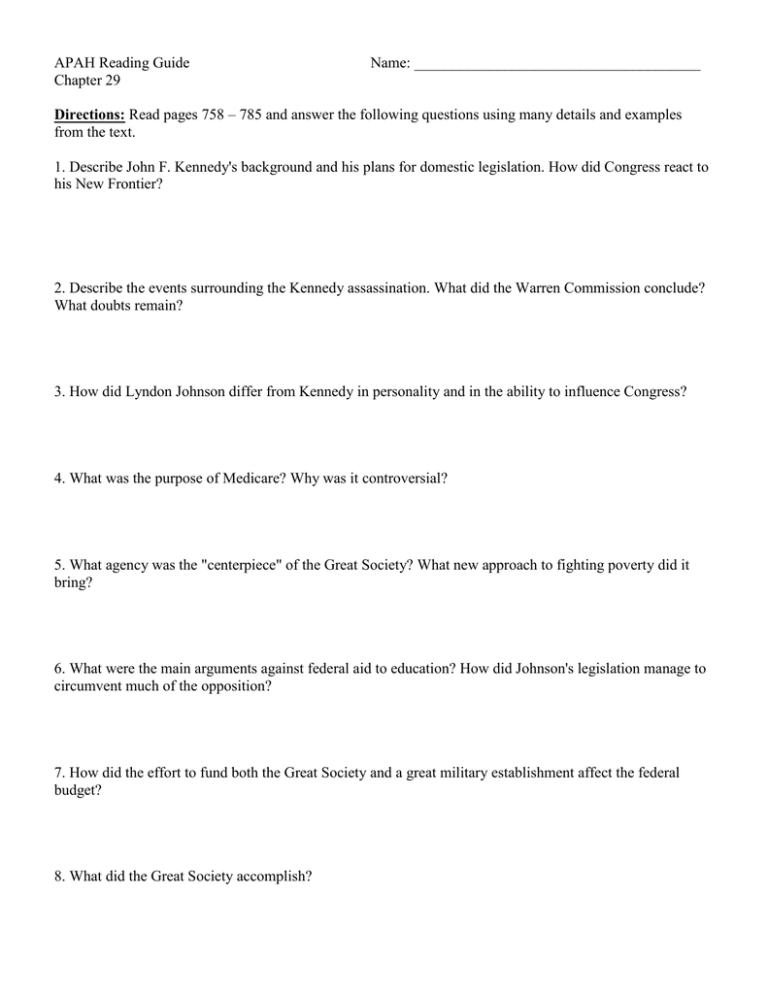
APAH Reading Guide Chapter 29 Name: ______________________________________ Directions: Read pages 758 – 785 and answer the following questions using many details and examples from the text. 1. Describe John F. Kennedy's background and his plans for domestic legislation. How did Congress react to his New Frontier? 2. Describe the events surrounding the Kennedy assassination. What did the Warren Commission conclude? What doubts remain? 3. How did Lyndon Johnson differ from Kennedy in personality and in the ability to influence Congress? 4. What was the purpose of Medicare? Why was it controversial? 5. What agency was the "centerpiece" of the Great Society? What new approach to fighting poverty did it bring? 6. What were the main arguments against federal aid to education? How did Johnson's legislation manage to circumvent much of the opposition? 7. How did the effort to fund both the Great Society and a great military establishment affect the federal budget? 8. What did the Great Society accomplish? 9. Describe the increasing civil rights activism of the early 1960s. How did this protest movement lead to "the most important civil rights bill of the twentieth century”? 10. What events prompted passage of the Civil Rights Act of 1965 (Voting Rights Act)? 11. How did the focus of racial issues and the locus of the civil rights movement change in the mid- to late1960s? 12. Describe the race riots of 1964 to 1967. What response did the Commission on Civil Disorder suggest? What response did many white Americans prefer? 13. What did "black power" mean? What impact did it have on the civil rights movement and on the attitudes of American blacks in general? 14. How did John F. Kennedy's approach to foreign policy contrast with Eisenhower's? What specific programs illustrated that difference? 15. What were the purpose and the result of the Bay of Pigs invasion? 16. What precipitated the Cuban missile crisis? How was it resolved? What was its legacy? 17. Why did Lyndon Johnson send troops to the Dominican Republic? Was the action reminiscent of the interventions in the days of the Roosevelt Corollary? 18. Describe the Diem regime and its war effort up to 1963. What led to the coup and assassination that ended his rule? 19. Recount the stages of Johnson's escalation of the Vietnam War up to 1967. Why did the conflict become a "quagmire”? 20. Why did America's two-fold strategy of "attrition" and "pacification" fail? 21. Describe the war protest movement. How did it move from the streets into Congress and the administration? 22. How did involvement in Vietnam affect the American economy and the Great Society? 23. Why can the Tet Offensive be characterized as "a military victory for the United States, but…a political defeat for the administration”? 24. How did the nation respond to the assassination of Martin Luther King Jr.? 25. Describe the turmoil within the Democratic Party in 1968. How did Richard Nixon and George Wallace exploit this turmoil and the general national mood in the 1968 presidential election? 26. How have historians differed in their explanations for the involvement of the United States in Vietnam? 27. Why was 1968 such a tumultuous year around much of the world as well as in the United States? 28. Compare and contrast Kennedy’s New Frontier with Johnson’s Great Society. 29. What changed in the government response to the Civil Rights Movement of the 1960s? 30. What is the legacy of the Great Society? Was it a massive success as Johnson envisioned it, or a total failure of fiscal policy? Explain.
